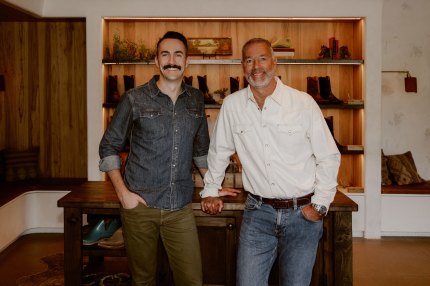Steve Case is no stranger to how policy can help aid innovation. His former company AOL would have been dead in the water if not for the Telecommunications Act of 1996, which required telecoms companies to open access to their tech. Now, Case is hoping the federal government will look to take the same stance with AI policy.
Case, now the founder of Revolution, told the audience at TechCrunch’s StrictlyVC event on June 11 that open access not only helped his company back in the ’90s but is also why the internet was able to progress in the way that it did. Regulators should aim for the same goal with AI policy despite the potential risks.
“I acknowledge there’s risk associated with open source, including national security risk, I am not naïve about that,” Case said. “But I think the biggest risk would be not enabling this whole new generation of innovators and entrepreneurs to participate and just allowing the big tech companies to get bigger.”
He said opening access to horizontal AI players like OpenAI and Google would also help expand AI away from being concentrated on the coasts. He reasoned that keeping them open would allow vertical AI companies to build on top of their tech and building vertical AI for industries like agriculture or healthcare would naturally involve companies based outside of the coastal startup hubs.
“We need to make sure that the broad platforms, the large language models are open now and in the future,” he said. “We also need to make sure if venture capitalists, including hopefully some of this room, are backing some of these companies focused in vertical areas.”
Case also talked about how despite the AI boom being less than two years old, the time to introduce policy is now. He said after watching what happened with social media companies and the rise of the internet, after a light-touch regulation approach with Section 230, the government shouldn’t repeat itself.
“What’s different about AI is how it kind of became this overnight phenomenon and really a global phenomenon,” Case said. “It took us [AOL] nine years to get 1 million members, it took OpenAI something like three months to get 100 million. So obviously they’re smarter than we are but the times also have changed. As a result, it does require more intervention.”
He argued that now is also the time to get regulation right so that companies know how to build from the start. He added that states have started some ad hoc regulation but that isn’t the best way to approach AI policy.
“So almost every company, while they might prefer less regulation, would rather have a clearer sense of what the playing field looks like and not have different states do different things,” Case said. Crypto companies can likely relate. “We saw that in the early days of the internet, and where there was a real push to have a kind of unified federal policies on key things as opposed to have the states do different things that made it much more difficult.”
All of this sentiment ties back to Case’s current initiatives with Revolution, a venture and growth firm that backs startups based outside of Silicon Valley, New York and Boston. Case said he hopes that regulation not only protects what companies have access to now but also in the future.
“I am not arguing in favor of big tech, I’m more in favor of a little tech, my passion,” Case said. “My focus, like many of you, is on startups, and the next generation of entrepreneurs that can create the next companies. And they can only do that if they have a real shot, if they have a level playing field. AOL would not have existed if it hadn’t been for that decision to open up the networks and provide open access.”













